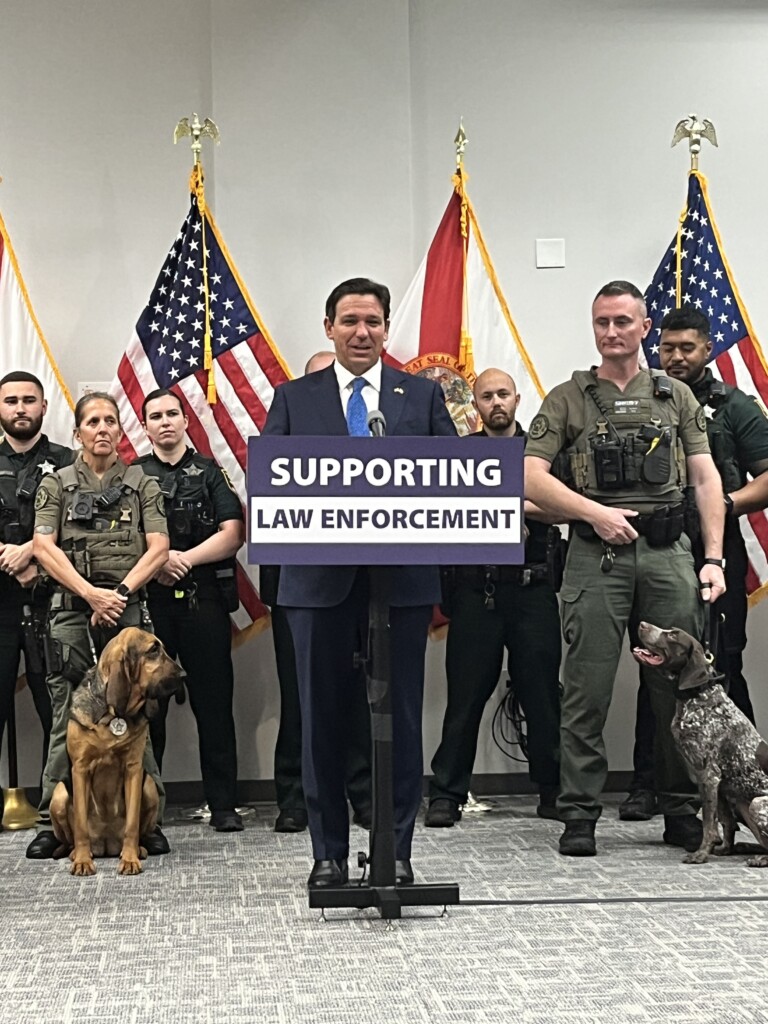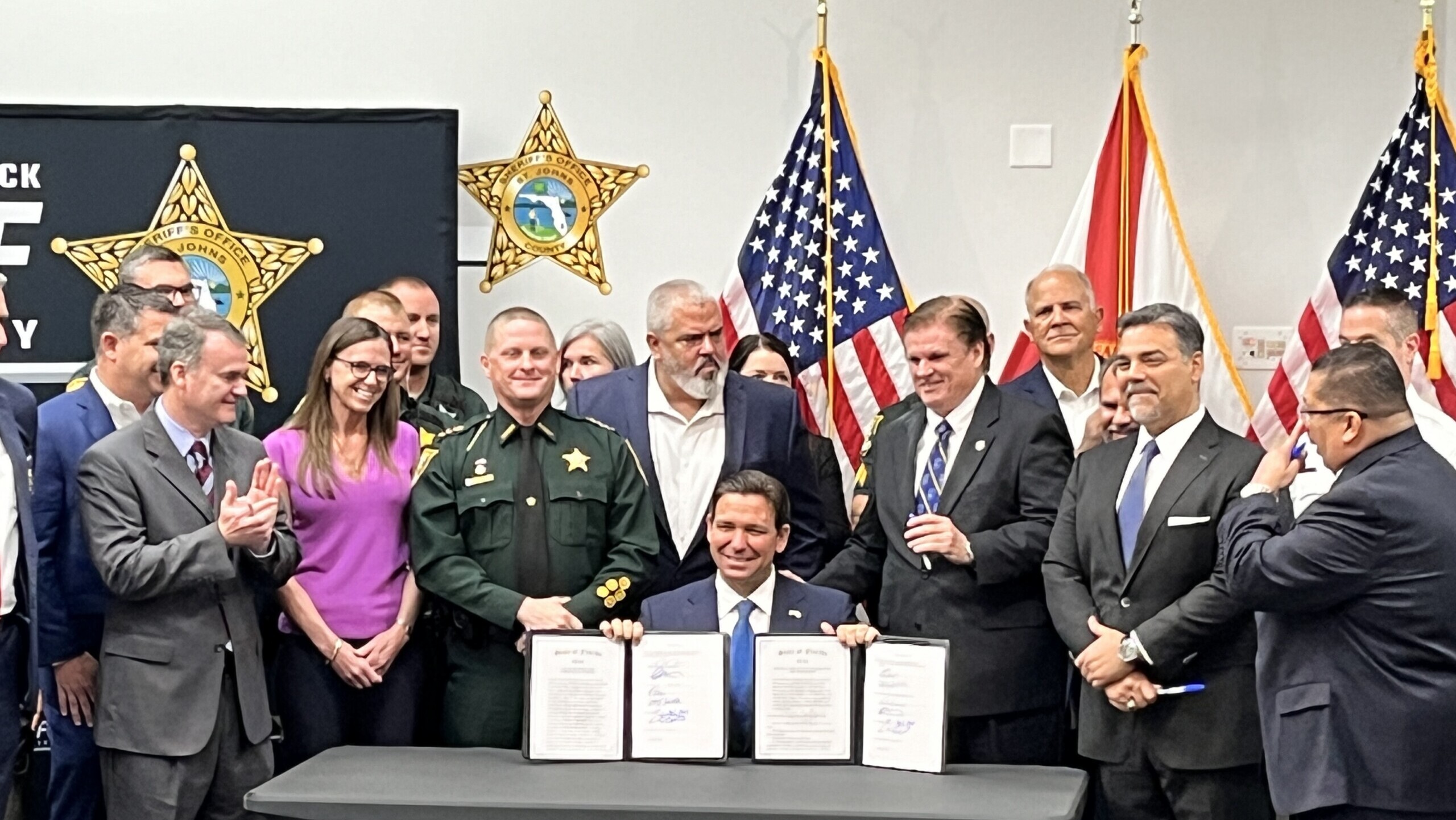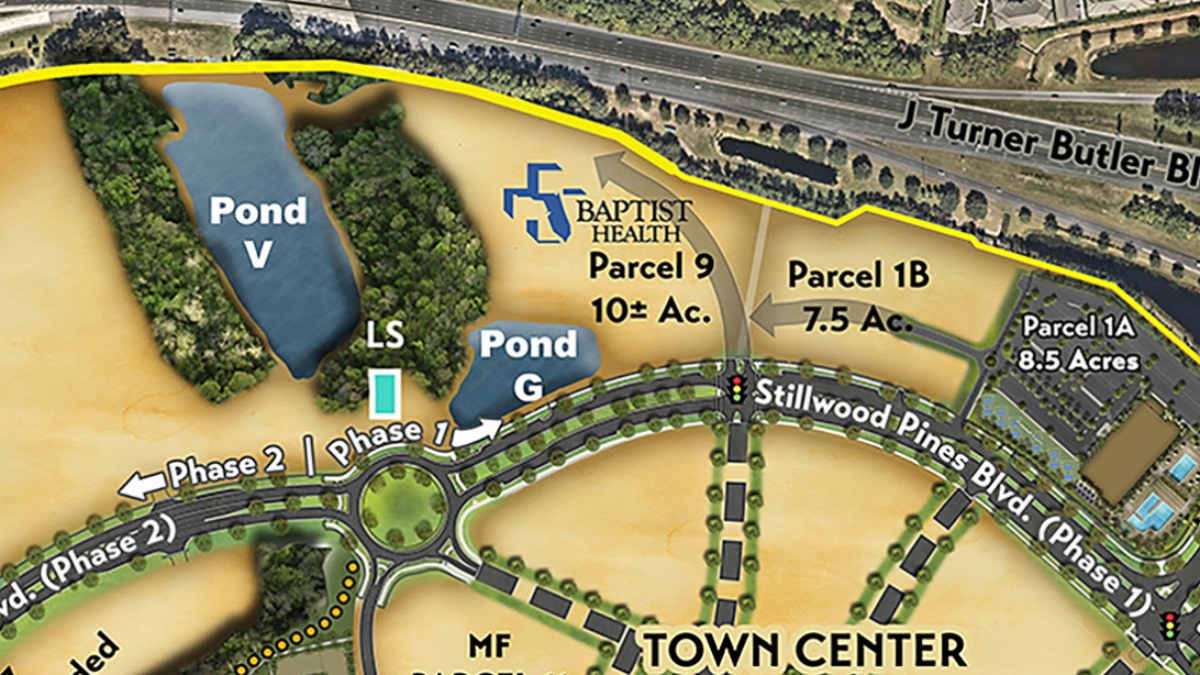Flanked by law enforcement officers, Gov. Ron DeSantis appeared at the St. Johns County Sheriff’s Office on Friday to sign two new bills into law.
Both laws take aim at interference with law enforcement, and the ACLU has criticized both for running afoul of Floridians’ First Amendment rights.
The first is SB 184, which Rep. Alex Rizo, R-Miami, the House sponsor, dubbed “The Halo Act.”
When the law takes effect next year, it will become a crime to approach first responders if told not to. People who approach within 25 feet of the first responder with the intent to threaten them, harass them or get in the way of their job can be charged with a second-degree misdemeanor.
Florida Department of Law Enforcement Commissioner Mark Glass said the law will protect law enforcement officers from being interrupted on the job — for example, when making an arrest during a protest. The ACLU of Florida says the bill grants law enforcement agencies “unchecked power.”
DeSantis also signed into law HB 601, which will raise salaries for law enforcement officers and takes aim at police review boards beginning this summer.
According to the governor’s office, the law:
- Prevents anti-police activists from carrying out extrajudicial investigations against law enforcement.
- Ensures that civilian oversight boards are directed by a sheriff or chief of police and are comprised of at least three to seven members, all of whom are appointed by the sheriff or chief of police.
- Requires that at least one member is a retired law enforcement officer.
- Ensures that misconduct allegations are investigated by people trained to handle such investigations, such as internal affairs departments or the Criminal Justice Standards and Training Commission
Community groups in Northeast Florida have pushed for police oversight boards as a means to examine the actions of individual officers as well as law enforcement policies, but DeSantis said activists use the boards as a “political weapon.”
“If you have review boards, that’s fine, but it’s got to be done in ways where you have the sheriff or chief of police appointing people because the sheriffs and chief of police, they have an interest in ensuring their personnel are conducting themselves appropriately as well,” DeSantis said. “But it can’t be people that have an agenda.”

Boards will still be able to look at systemic problems, Glass said, but the boards won’t be allowed to take aim at individual officers. The ACLU of Florida opposes this new law, too, and Glass said he wishes the ACLU “would get things right.”
“If they would pay attention to how our state works, we have review boards,” he said. “Every agency has internal affairs, and if they don’t, they utilize another agency’s internal affairs to investigate an incident … to see if it’s criminal or not criminal of the officer it’s involved with.”
Both bills are part of what St. Johns County Sheriff Rob Hardwick says is the governor showing what “back the blue” really means in Florida.
He praised the governor for signing the bills into law and giving his deputies the “latitude to enforce” the law.







